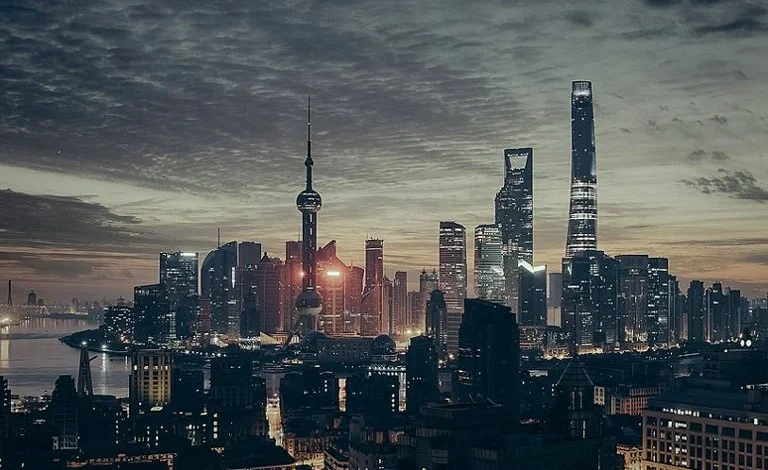From Shanghai with energy

Back home after 10 days in China, I am slowly recovering from the effects of the jet lag and I can start putting some order in my impressions from what I saw and experienced.
First of all, the meeting I attended: it had an ambitious title, “Earth-Humanity Reconciliation.” It was a rather large-scale event organized, among others, by UNESCO, the Club of Rome, and the Shanghai University of Engineering Science. It was a marathon of presentations and discussions among researchers from 15 different countries, and I did my best to absorb as much as I could.
The meeting reinforced my impression that the Chinese are serious about the energy transition. They adopted the concept of “Ecological Civilization,” 生态文明 (shēngtài wénmíng), which is now an official government policy, enshrined in the Chinese constitution. The idea is that Nature and the human economy must be in harmony with each other, a concept also expressed as “The Two Mountains.”
Just talk? I would say no. When the Chinese set their minds to doing something, they usually do it, and they do it seriously. It’s not that there is no greenwashing in China, but the Chinese have understood one thing: if they don’t quickly free themselves from fossil fuels, they will not be able to maintain the prosperity they have built through decades of hard work and sacrifice.
China imports almost all the oil and gas it uses, which is expensive and makes the country strategically vulnerable. They still use coal, which remains the main source of electricity for now (60% of the total power production, against about 40% from renewables), but it is highly polluting and can’t last forever. The conference discussed how to achieve “Net Zero” emissions; the current government plan is to get there by 2060. It may be too late to avoid major damage, but the Chinese are known for exceeding expectations when they put their minds to it. In this, they are being helped by the population having stopped growing, and starting now a slow decline. It will reduce the pressure on resources and generate less pollution.
China’s success in renewable energy has been nothing short of astonishing. The Chinese industry is now capable of producing photovoltaic systems at costs so low that they beat all other sources, except perhaps wind. Not to mention new, low-cost batteries, electric cars, automation, robots, and the electrification of the economic system in general. These are all areas where China is gaining a technological advantage over the West that could soon become impossible to bridge. And the point is not so much that they are moving faster than us (intended as “the West”). The point is that while they are moving forward, we are moving backward. Instead of investing in the future, we are struggling to continue using obsolete technologies. What to say? We will get what we deserve.
Thus, the growth of renewable energy production in China is exponential, while coal production is stalling and is expected to decline in the coming years. The results are clear to see. Chinese cities were once known for being horribly polluted, but today, if you walk along the busy boulevards of Shanghai, you can smell the aromatic plants growing at the sides (apart from the areas where the main smell is that of Chinese restaurants!). And the only noise you hear is the humming of electric motors. The scooters are all electric. Most private cars are electric, while heavy traffic is not yet electrified, but they are working on it.
So, should we learn from China how to solve our current impasse? I think so, and you may be interested in a recent book by Chandran Nair and others, Understanding China. Below, Nair is shown while giving a talk at the Shanghai meeting.
Chandran Nair is one of the few non-Chinese intellectuals who take seriously the Chinese experience and discuss how it could be applied in the West. He exposes the concept of the “strong state,” which I discussed in a previous post. I wrote that, “In his book The Sustainable State (2018). Chandran Nair forcefully makes the point that no serious measures can be taken against threats such as pollution or climate change if the state is not strong. That does not mean a dictatorship: it means a state that enjoys citizens’ trust, supports itself on a fair taxation system, and can clamp down on the attempts of the lobbies to carve the nation’s wealth among themselves.”
Is it a good recipe to adopt for the West? The fact that the Chinese system has been so successful up to now doesn’t mean it will easily adaptable to the West. Nor it is evident that the Chinese system will be able to face the challenges awaiting humankind in the near future: mineral depletion, pollution, and climate change. But one thing is sure: the Chinese are doing something good and we have a lot to learn from them.
To finish, here, the concept of “ecological civilization” is illustrated by the Goddess Gaia, together with her Chinese colleague, the Goddess Guanyin 觀音.
Shanghai Skyline (2016) by Adi Constantin via Wikimedia Commons https://commons.wikimedia.org/wiki/File:Shanghai_skyline_unsplash.jpg *** All other photos by Ugo Bardi and used by permission




